Greek Wine
The god of winemaking Dionysus created “nectar” for the gods of Olympus, and till today Greece is famous also for its delicious wine.
 Greece has a unique relief, mainly mountainous, with a small number of lowlands that alternate with the sea and the Mediterranean climate, with intense sun throughout the year and long and dry summers, creates special conditions for the growth and fruiting of local grapes.
Greece has a unique relief, mainly mountainous, with a small number of lowlands that alternate with the sea and the Mediterranean climate, with intense sun throughout the year and long and dry summers, creates special conditions for the growth and fruiting of local grapes.
The cultivation of grapes and then winemaking, have been the culture and history of Greek people for many centuries. During excavations on the territory of ancient civilizations in Greece, scientists have found the evidence that Greeks were making wine and even exported wine in 7th century BC.
As we know from the books, the Gods of Olympus spent most of their time having feasts with wine, and in the Iliad, Homer mentions cellars full of wine that arrived from Thrace on ships from Achaia. Over the centuries, wine has also become an important part of religious rituals.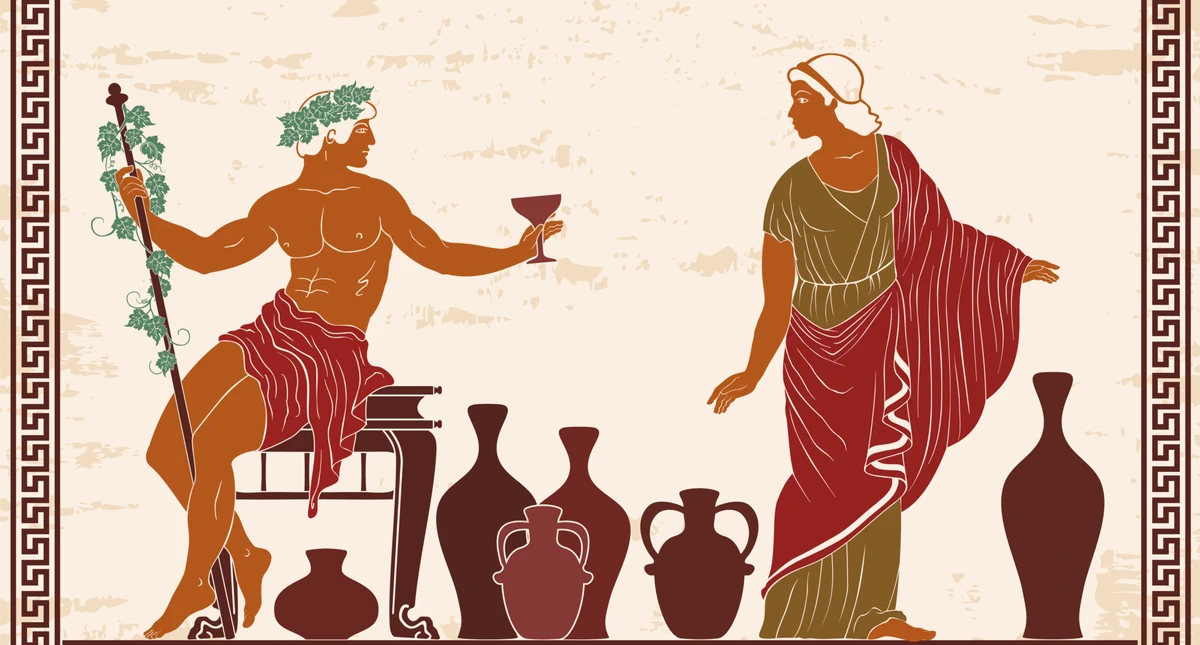 During the Byzantine Empire, winemaking declined. However, during this time the idea of wooden barrels was brought from Western Europe, later it transformed in the idea of wines aged in barrels. Also the technique of drying grapes spreaded, which gave the wine a unique aroma and density. One of the most popular wines of that period was Monemvasia wine, which was exported to France, Germany and England until the 18th century.
During the Byzantine Empire, winemaking declined. However, during this time the idea of wooden barrels was brought from Western Europe, later it transformed in the idea of wines aged in barrels. Also the technique of drying grapes spreaded, which gave the wine a unique aroma and density. One of the most popular wines of that period was Monemvasia wine, which was exported to France, Germany and England until the 18th century.
The export of wine was partially interrupted when Contantinople was conquered in 1453, and most of the cultivated land was destroyed because the Turks left after the revolution in 1821, with some exceptions of vineyards on Crete and on some islands of the Aegean and Ionian Seas.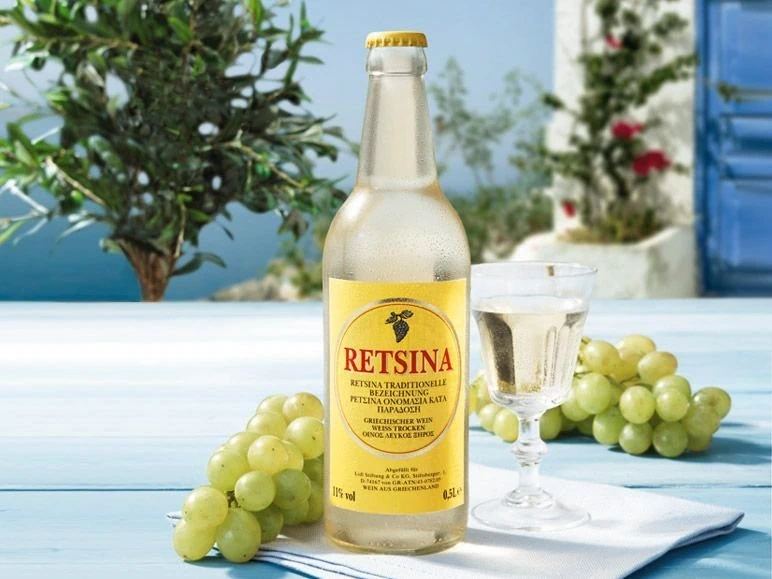 It took many decades for Greeks to restore their former success in winemaking. Closer to our time, in the 1960s, Greece began to produce Retsina wine, which get the unique taste as a result of the use of wood resin for clogging wooden barrels. It was the resin that gave this unique pine aroma to the wine. Later, after the successful start of wine export, the winemaking became more popular. Thus, in 1970, winemaking get new development, and among the first grape varieties that young winemakers got acquainted with were Greek Moschofilero, Roditis, Savatiano, Xynomavro and Agiorgitiko, as well as international, Chardonnay and Cabernet Sauvignon. Nowadays, more than 200 different varieties of wine grapes grow in Greece. By the way, vineyards intended for winemaking begin to actively bear fruit at the age of 7 years approximately, although a vine with dessert grape varieties, already in the second year after planting, can bear fruit. For that, after 15-17 years, vineyards with dessert varieties are completely cut off and get some time to rest, and wine grape varieties can bear fruit for centuries.
It took many decades for Greeks to restore their former success in winemaking. Closer to our time, in the 1960s, Greece began to produce Retsina wine, which get the unique taste as a result of the use of wood resin for clogging wooden barrels. It was the resin that gave this unique pine aroma to the wine. Later, after the successful start of wine export, the winemaking became more popular. Thus, in 1970, winemaking get new development, and among the first grape varieties that young winemakers got acquainted with were Greek Moschofilero, Roditis, Savatiano, Xynomavro and Agiorgitiko, as well as international, Chardonnay and Cabernet Sauvignon. Nowadays, more than 200 different varieties of wine grapes grow in Greece. By the way, vineyards intended for winemaking begin to actively bear fruit at the age of 7 years approximately, although a vine with dessert grape varieties, already in the second year after planting, can bear fruit. For that, after 15-17 years, vineyards with dessert varieties are completely cut off and get some time to rest, and wine grape varieties can bear fruit for centuries.
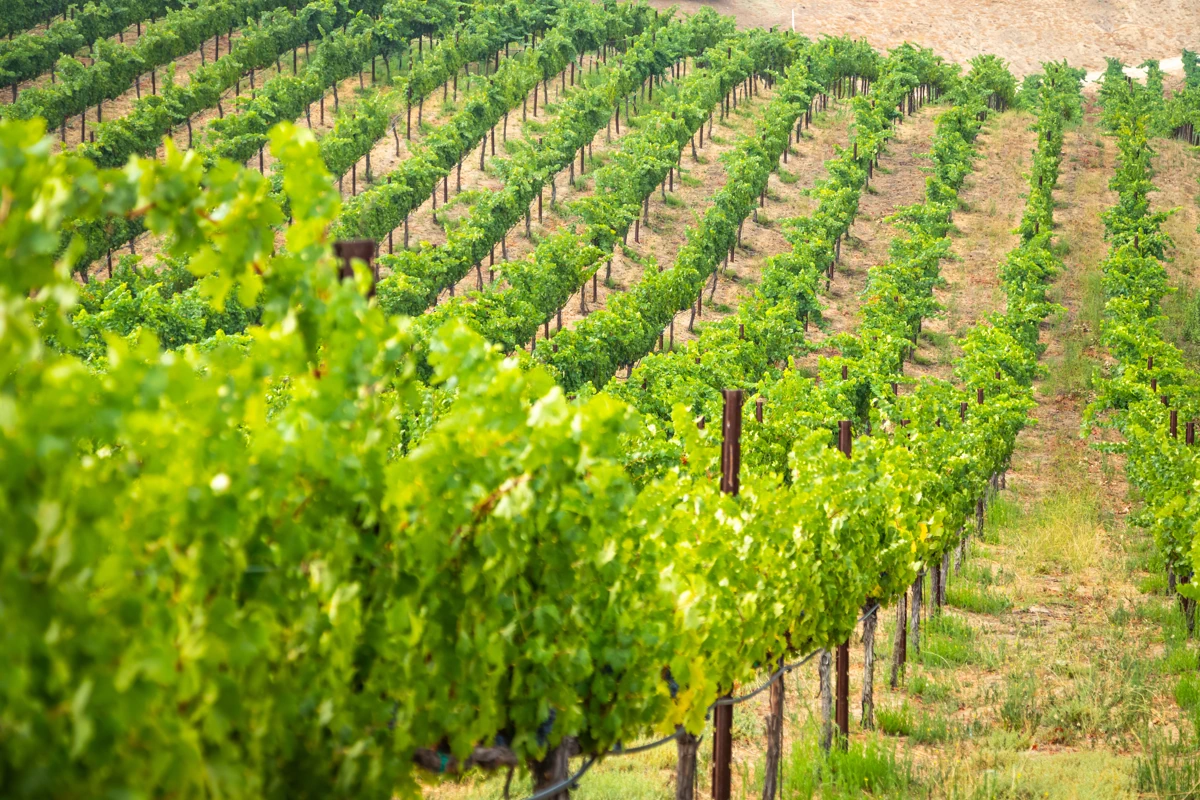 Winemaking and vine care requires special work all year round. It all starts with loosening the soil, tying up branches, cutting off excess parts, irrigation, spraying from insect pests and ends with evaluation of ripeness, protection from insect pests and diseases until full maturity. The bunches of grape are closely watched throughout the summer, when the fruit reaches full ripeness, the harvest begins.
Winemaking and vine care requires special work all year round. It all starts with loosening the soil, tying up branches, cutting off excess parts, irrigation, spraying from insect pests and ends with evaluation of ripeness, protection from insect pests and diseases until full maturity. The bunches of grape are closely watched throughout the summer, when the fruit reaches full ripeness, the harvest begins.
In Greece, the moment of the beginning of the grape harvest is a holiday for all winemakers. Usually this period longs from August to November. Local winemakers collect grapes by hand in baskets and deliver them to warehouses.
After that come the processes of grinding and pressing, previously this happened in the following way. Men and women climbed into containers with grapes and intensively stepped on it with their bare feet until all the grapes were crushed. Nowadays, this happens in factories, this all has improved the quality of wine. After that, to produce white wine, it is necessary to immediately separate the juice from the rest of the parts, and for the red wine it’s necessary to leave it for additional color intensity. Fermentation, clarification, maturation and bottling, wine makers usually follow these steps, but sometimes add their own details to make the wine unique.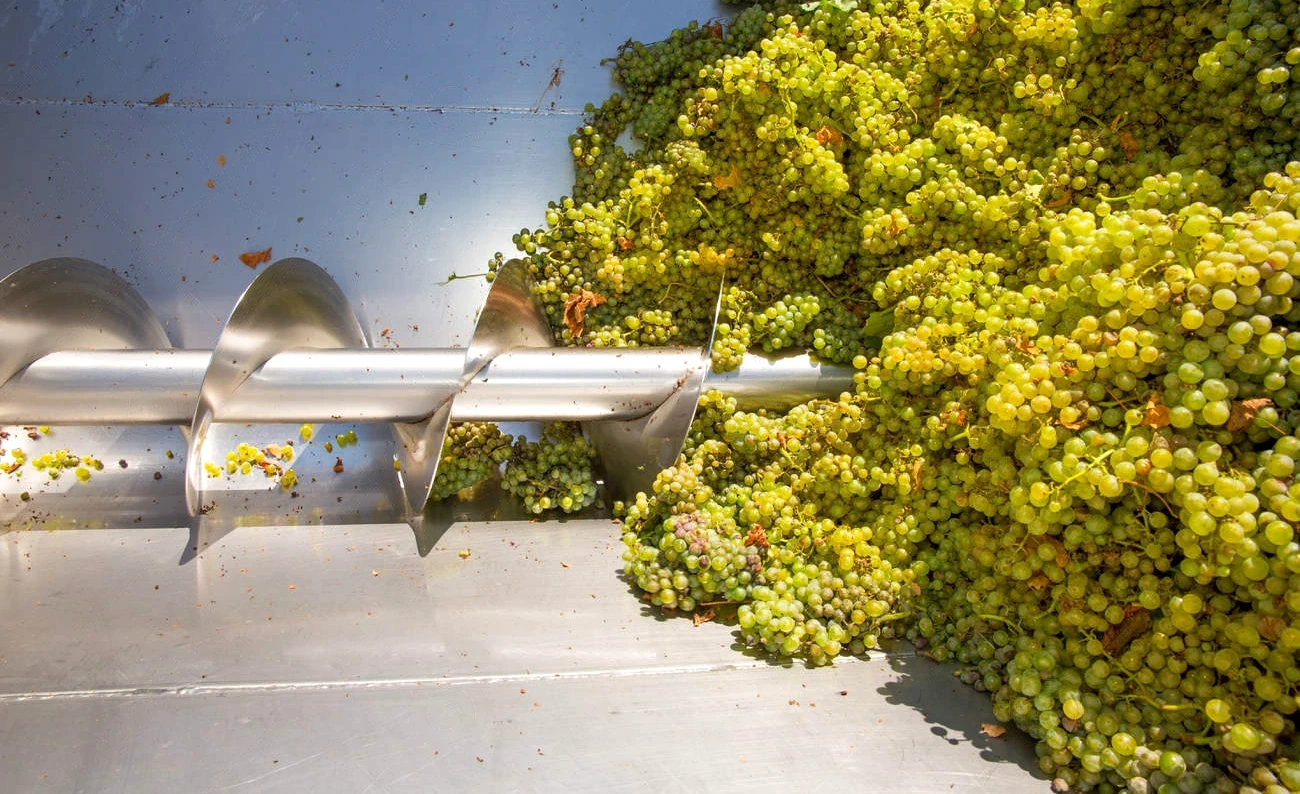 After pressing, the fermentation process begins. Wort or juice can begin to ferment naturally within 6-12 hours because of the elements in the air. However, many winemakers help a little and add some specific yeast. Fermentation continues until the sugar turns into alcohol, that’s how the dry wine is made. To create a sweet wine, winemakers sometimes stop the process before all the sugar has been converted. Fermentation can last from several days to a month or more.
After pressing, the fermentation process begins. Wort or juice can begin to ferment naturally within 6-12 hours because of the elements in the air. However, many winemakers help a little and add some specific yeast. Fermentation continues until the sugar turns into alcohol, that’s how the dry wine is made. To create a sweet wine, winemakers sometimes stop the process before all the sugar has been converted. Fermentation can last from several days to a month or more.
After fermentation is complete, filtration begins, a process in which solid particles such as dead yeast cells, tannins and proteins are removed. The wine is poured into another container, for example, into an oak barrel or a stainless steel tank. Then the wine can be clarified by adding substances that make it more transparent. For example, a winemaker can add a substance such as clay that will stick to unwanted particles and make them sink to the bottom of the container. Filtration is carried out using a filter to capture larger particles of wine. Then the already purified wine is poured into another container and prepared for bottling or aging.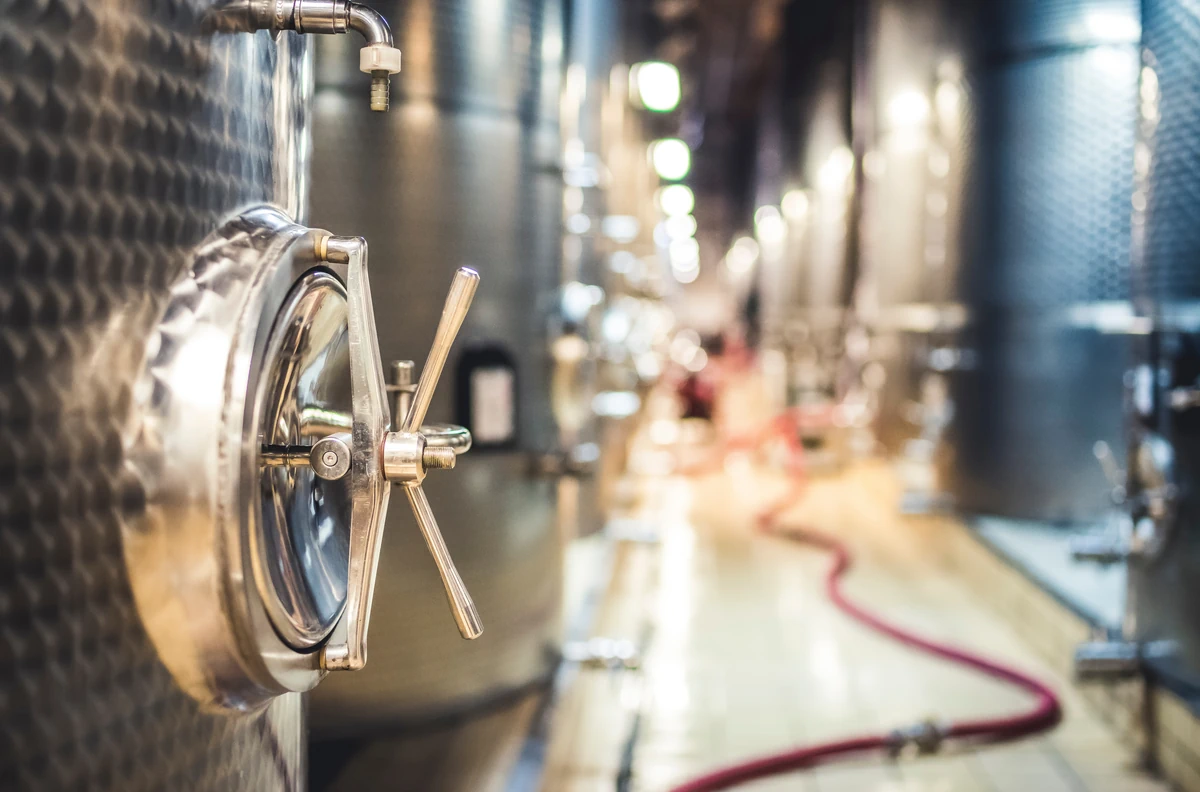 Maturation and bottling is the final stage of wine production. The manufacturer has two options: either immediately bottle the wine, or leave it for aging. Further aging can be carried out in bottles, stainless steel tanks or oak barrels. Aging wine in oak barrels allows you to get a softer and more aromatic wine, and also increases the effect of oxygen on the wine during aging, reducing the tannin content and helping the wine to achieve optimal condition. Stainless steel tanks are usually used for white wines.
Maturation and bottling is the final stage of wine production. The manufacturer has two options: either immediately bottle the wine, or leave it for aging. Further aging can be carried out in bottles, stainless steel tanks or oak barrels. Aging wine in oak barrels allows you to get a softer and more aromatic wine, and also increases the effect of oxygen on the wine during aging, reducing the tannin content and helping the wine to achieve optimal condition. Stainless steel tanks are usually used for white wines.
After aging, the wine is bottled with a cork or screwcap, depending on the preferences of the winemaker.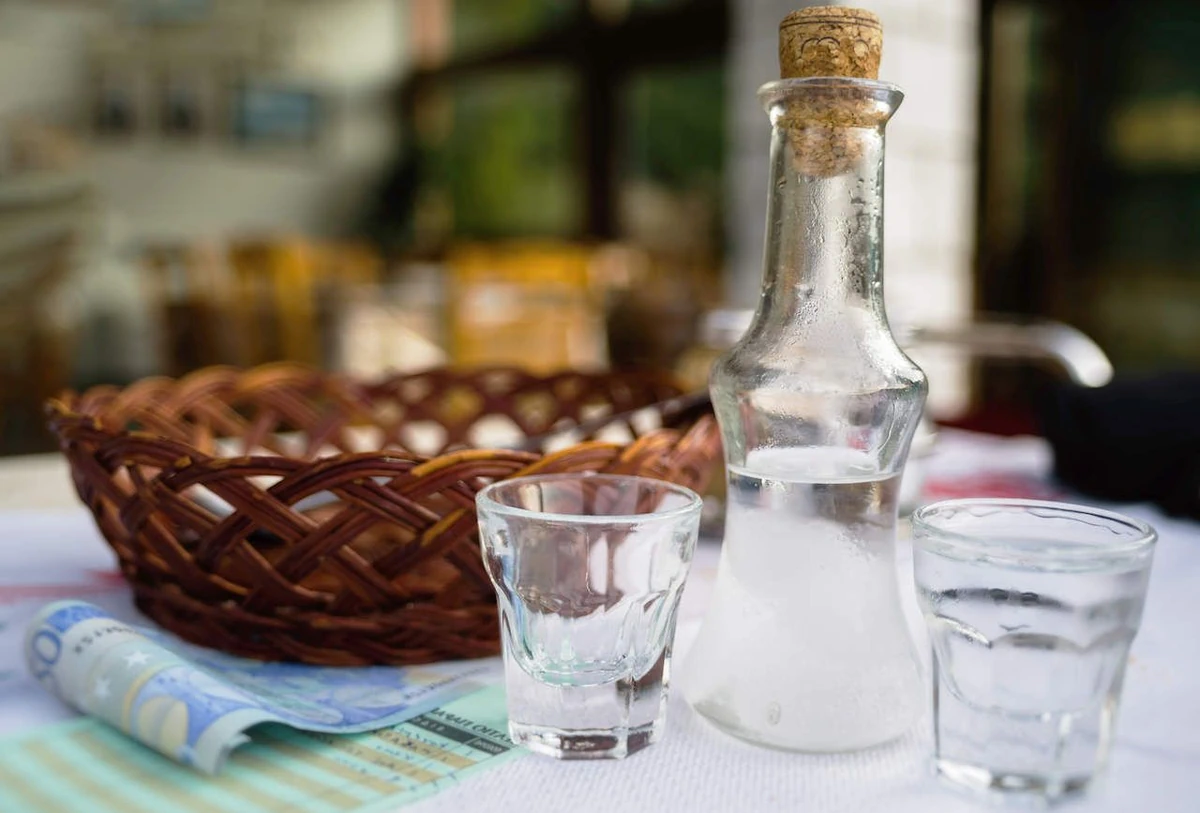 Greeks try to use everything, so the remains of the grapes after juicing are put on fermentation and used to make famous local alcoholic drink “raki”. This is a completely legal process in Greece, for which it is necessary to obtain permission from the authorities.
Greeks try to use everything, so the remains of the grapes after juicing are put on fermentation and used to make famous local alcoholic drink “raki”. This is a completely legal process in Greece, for which it is necessary to obtain permission from the authorities.
 Greece has a unique relief, mainly mountainous, with a small number of lowlands that alternate with the sea and the Mediterranean climate, with intense sun throughout the year and long and dry summers, creates special conditions for the growth and fruiting of local grapes.
Greece has a unique relief, mainly mountainous, with a small number of lowlands that alternate with the sea and the Mediterranean climate, with intense sun throughout the year and long and dry summers, creates special conditions for the growth and fruiting of local grapes.
The cultivation of grapes and then winemaking, have been the culture and history of Greek people for many centuries. During excavations on the territory of ancient civilizations in Greece, scientists have found the evidence that Greeks were making wine and even exported wine in 7th century BC.
As we know from the books, the Gods of Olympus spent most of their time having feasts with wine, and in the Iliad, Homer mentions cellars full of wine that arrived from Thrace on ships from Achaia. Over the centuries, wine has also become an important part of religious rituals.
 During the Byzantine Empire, winemaking declined. However, during this time the idea of wooden barrels was brought from Western Europe, later it transformed in the idea of wines aged in barrels. Also the technique of drying grapes spreaded, which gave the wine a unique aroma and density. One of the most popular wines of that period was Monemvasia wine, which was exported to France, Germany and England until the 18th century.
During the Byzantine Empire, winemaking declined. However, during this time the idea of wooden barrels was brought from Western Europe, later it transformed in the idea of wines aged in barrels. Also the technique of drying grapes spreaded, which gave the wine a unique aroma and density. One of the most popular wines of that period was Monemvasia wine, which was exported to France, Germany and England until the 18th century.
The export of wine was partially interrupted when Contantinople was conquered in 1453, and most of the cultivated land was destroyed because the Turks left after the revolution in 1821, with some exceptions of vineyards on Crete and on some islands of the Aegean and Ionian Seas.
 It took many decades for Greeks to restore their former success in winemaking. Closer to our time, in the 1960s, Greece began to produce Retsina wine, which get the unique taste as a result of the use of wood resin for clogging wooden barrels. It was the resin that gave this unique pine aroma to the wine. Later, after the successful start of wine export, the winemaking became more popular. Thus, in 1970, winemaking get new development, and among the first grape varieties that young winemakers got acquainted with were Greek Moschofilero, Roditis, Savatiano, Xynomavro and Agiorgitiko, as well as international, Chardonnay and Cabernet Sauvignon. Nowadays, more than 200 different varieties of wine grapes grow in Greece. By the way, vineyards intended for winemaking begin to actively bear fruit at the age of 7 years approximately, although a vine with dessert grape varieties, already in the second year after planting, can bear fruit. For that, after 15-17 years, vineyards with dessert varieties are completely cut off and get some time to rest, and wine grape varieties can bear fruit for centuries.
It took many decades for Greeks to restore their former success in winemaking. Closer to our time, in the 1960s, Greece began to produce Retsina wine, which get the unique taste as a result of the use of wood resin for clogging wooden barrels. It was the resin that gave this unique pine aroma to the wine. Later, after the successful start of wine export, the winemaking became more popular. Thus, in 1970, winemaking get new development, and among the first grape varieties that young winemakers got acquainted with were Greek Moschofilero, Roditis, Savatiano, Xynomavro and Agiorgitiko, as well as international, Chardonnay and Cabernet Sauvignon. Nowadays, more than 200 different varieties of wine grapes grow in Greece. By the way, vineyards intended for winemaking begin to actively bear fruit at the age of 7 years approximately, although a vine with dessert grape varieties, already in the second year after planting, can bear fruit. For that, after 15-17 years, vineyards with dessert varieties are completely cut off and get some time to rest, and wine grape varieties can bear fruit for centuries.
 Winemaking and vine care requires special work all year round. It all starts with loosening the soil, tying up branches, cutting off excess parts, irrigation, spraying from insect pests and ends with evaluation of ripeness, protection from insect pests and diseases until full maturity. The bunches of grape are closely watched throughout the summer, when the fruit reaches full ripeness, the harvest begins.
Winemaking and vine care requires special work all year round. It all starts with loosening the soil, tying up branches, cutting off excess parts, irrigation, spraying from insect pests and ends with evaluation of ripeness, protection from insect pests and diseases until full maturity. The bunches of grape are closely watched throughout the summer, when the fruit reaches full ripeness, the harvest begins.
In Greece, the moment of the beginning of the grape harvest is a holiday for all winemakers. Usually this period longs from August to November. Local winemakers collect grapes by hand in baskets and deliver them to warehouses.
After that come the processes of grinding and pressing, previously this happened in the following way. Men and women climbed into containers with grapes and intensively stepped on it with their bare feet until all the grapes were crushed. Nowadays, this happens in factories, this all has improved the quality of wine. After that, to produce white wine, it is necessary to immediately separate the juice from the rest of the parts, and for the red wine it’s necessary to leave it for additional color intensity. Fermentation, clarification, maturation and bottling, wine makers usually follow these steps, but sometimes add their own details to make the wine unique.
 After pressing, the fermentation process begins. Wort or juice can begin to ferment naturally within 6-12 hours because of the elements in the air. However, many winemakers help a little and add some specific yeast. Fermentation continues until the sugar turns into alcohol, that’s how the dry wine is made. To create a sweet wine, winemakers sometimes stop the process before all the sugar has been converted. Fermentation can last from several days to a month or more.
After pressing, the fermentation process begins. Wort or juice can begin to ferment naturally within 6-12 hours because of the elements in the air. However, many winemakers help a little and add some specific yeast. Fermentation continues until the sugar turns into alcohol, that’s how the dry wine is made. To create a sweet wine, winemakers sometimes stop the process before all the sugar has been converted. Fermentation can last from several days to a month or more.
After fermentation is complete, filtration begins, a process in which solid particles such as dead yeast cells, tannins and proteins are removed. The wine is poured into another container, for example, into an oak barrel or a stainless steel tank. Then the wine can be clarified by adding substances that make it more transparent. For example, a winemaker can add a substance such as clay that will stick to unwanted particles and make them sink to the bottom of the container. Filtration is carried out using a filter to capture larger particles of wine. Then the already purified wine is poured into another container and prepared for bottling or aging.
 Maturation and bottling is the final stage of wine production. The manufacturer has two options: either immediately bottle the wine, or leave it for aging. Further aging can be carried out in bottles, stainless steel tanks or oak barrels. Aging wine in oak barrels allows you to get a softer and more aromatic wine, and also increases the effect of oxygen on the wine during aging, reducing the tannin content and helping the wine to achieve optimal condition. Stainless steel tanks are usually used for white wines.
Maturation and bottling is the final stage of wine production. The manufacturer has two options: either immediately bottle the wine, or leave it for aging. Further aging can be carried out in bottles, stainless steel tanks or oak barrels. Aging wine in oak barrels allows you to get a softer and more aromatic wine, and also increases the effect of oxygen on the wine during aging, reducing the tannin content and helping the wine to achieve optimal condition. Stainless steel tanks are usually used for white wines.
After aging, the wine is bottled with a cork or screwcap, depending on the preferences of the winemaker.
 Greeks try to use everything, so the remains of the grapes after juicing are put on fermentation and used to make famous local alcoholic drink “raki”. This is a completely legal process in Greece, for which it is necessary to obtain permission from the authorities.
Greeks try to use everything, so the remains of the grapes after juicing are put on fermentation and used to make famous local alcoholic drink “raki”. This is a completely legal process in Greece, for which it is necessary to obtain permission from the authorities. -

Discover the Enchanting Flavors of Santorini Wines
Enjoy Santorini’s volcanic wines – a taste of paradise in Greece.
-

Discover the Stunning Beaches of Corfu
Let’s dive into the top beaches of Corfu and explore the beauty they have to offer!
-

3 Days in Athens
Planning a trip to Athens? In this post, you will find out how to spend three days in Athens with a detailed three-day itinerary.